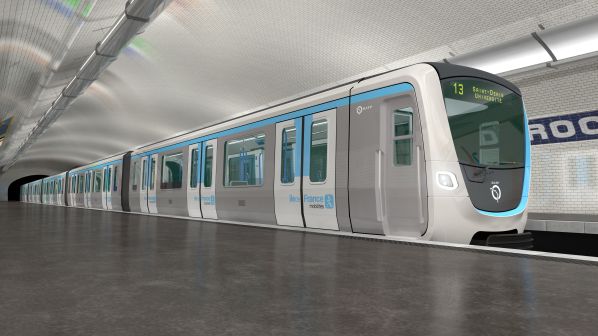The fleet will consist of 30 five-car 76m-long trains for Line 10 and 14 four-car trains for lines 7bis and 3bis. The trains will enter service between 2024 and 2026. The optional trains are intended for deployment on lines 13, 12, 3, 8 and 7.
The contract value is equally split between Alstom and Bombardier (€265m) with both companies set to manufacturer the trains in France. Both companies are responsible for assembly, testing, validation and certification, and are set to produce identical trains, which an Alstom spokesman said is the first time the company has worked in this way. The exact number of trains each supplier will produce has yet to be determined and the production model is considered a means to address the challenge of industrial capacity.
Alstom will develop and produce the engines in Ornans; traction in Tarbes; onboard electronics in Villeurbanne and IT safety systems in Aix en Provence. Bombardier’s Crespin site will be responsible for design of mechanical components including body shells and the design and production of the bogies. The company will also supply the air conditioning system and all components contributing to the design of the interior layout, including lighting, seats, space configuration and panelling equipment.
The project will involve 9000 jobs in the French rail sector, including 2300 people at Alstom and Bombardier, 700 of which are engineers.
The new trains will use 20% recycled materials during production and will be 98% recyclable at the end of their life. The sets will consume 20% less energy than the current MF77 trains in service on lines 7, 8 and 13, benefitting from electric braking and 100% LED lights. The trains will also offer a 15% maintenance cost saving compared with the MF01 used on lines 2, 5 and 9, which were delivered between 2008 and 2015.

